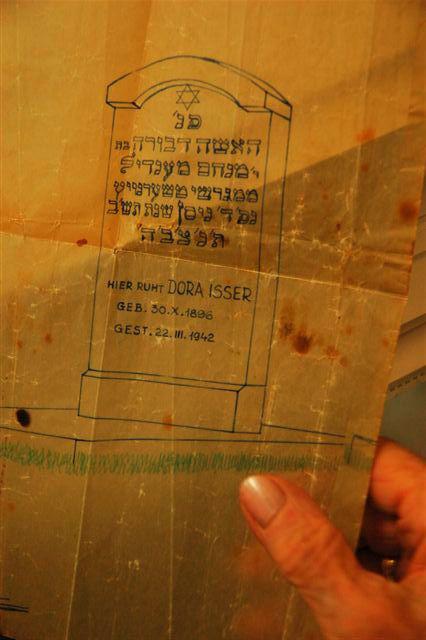

Working with Holocaust survivors to assist them with filling out Pages of Testimony in memory of their loved ones who were killed during the war inherently involves listening to the stories of terror, loss and pain as they are filtered through the memories of those who bear witness. In many cases, Yad Vashem staff and volunteers often form special, lasting relationships with the survivors who share their personal tragedies in order to ensure that they will become an integral part of the Jewish national memorial of the Holocaust.
This is the story of Erna Adorian (née Isser), and Talma Ofel, a child of Holocaust survivors who volunteers for the Shoah Victims' Names Recovery Project. The two first met last March when Talma visited Erna at her home in Ramat Gan, Israel to help her fill out Pages of Testimony for seven family members who were murdered in the Shoah. Last week Erna, 87, a survivor of Mogilev, a transit camp located in the Transnistria region of the Ukraine for Jews expelled from Bessarabia and Bukovina, visited Yad Vashem together with Talma and her late husband's son, Shlomo Livne, his wife Shani and their son Erez. One highlight of the visit - that included an emotional memorial ceremony at the wall inscribed with name of her hometown Sadgura in the Valley of the Communities and a tour of the Holocaust History Museum - was a visit to the Archives to view a piece of parchment paper that Erna gave to Yad Vashem for safekeeping.
The paper is a "map" documenting the location of her mother Dora Isser's grave in Mogilev. Tracing the map with a trembling hand, Erna told the incredible story of how her mother came to be buried and how she managed to get the map. Erna and her family arrived in Mogilev in October 1942 after a long and harrowing transport from Chernowitz. During their deportation they were often "stored" in bombed out houses and survived by bribing locals with the meager valuables they were able to salvage when they were forced to leave their home. After a few months of hard labor in Mogilev, Erna's mother fell ill and died. She would have been buried in a mass grave - the common fate of the majority of Jews who perished there - save for a German soldier, who, as Erna remembers it, accepted her mother's last dress in exchange for arranging her burial. Erna, who could not bear the thought of not having a record of her mother’s resting place, asked her uncle, who was a translator and worked in the office of a German soldier, to make a sketch of the location of the grave and to draw a tombstone on it. "I thought if I lived, she would want me to have record of where she rests," Erna explained.
Erna is the only member of her family that survived. She managed to save the map by hiding it in her shoe, her clothes and anywhere she could manage throughout the war. "Bringing this map to Yad Vashem, is like giving my mother a final resting place in Israel."
Learn more about the Shoah Vicitms' Names Recovery Project.









